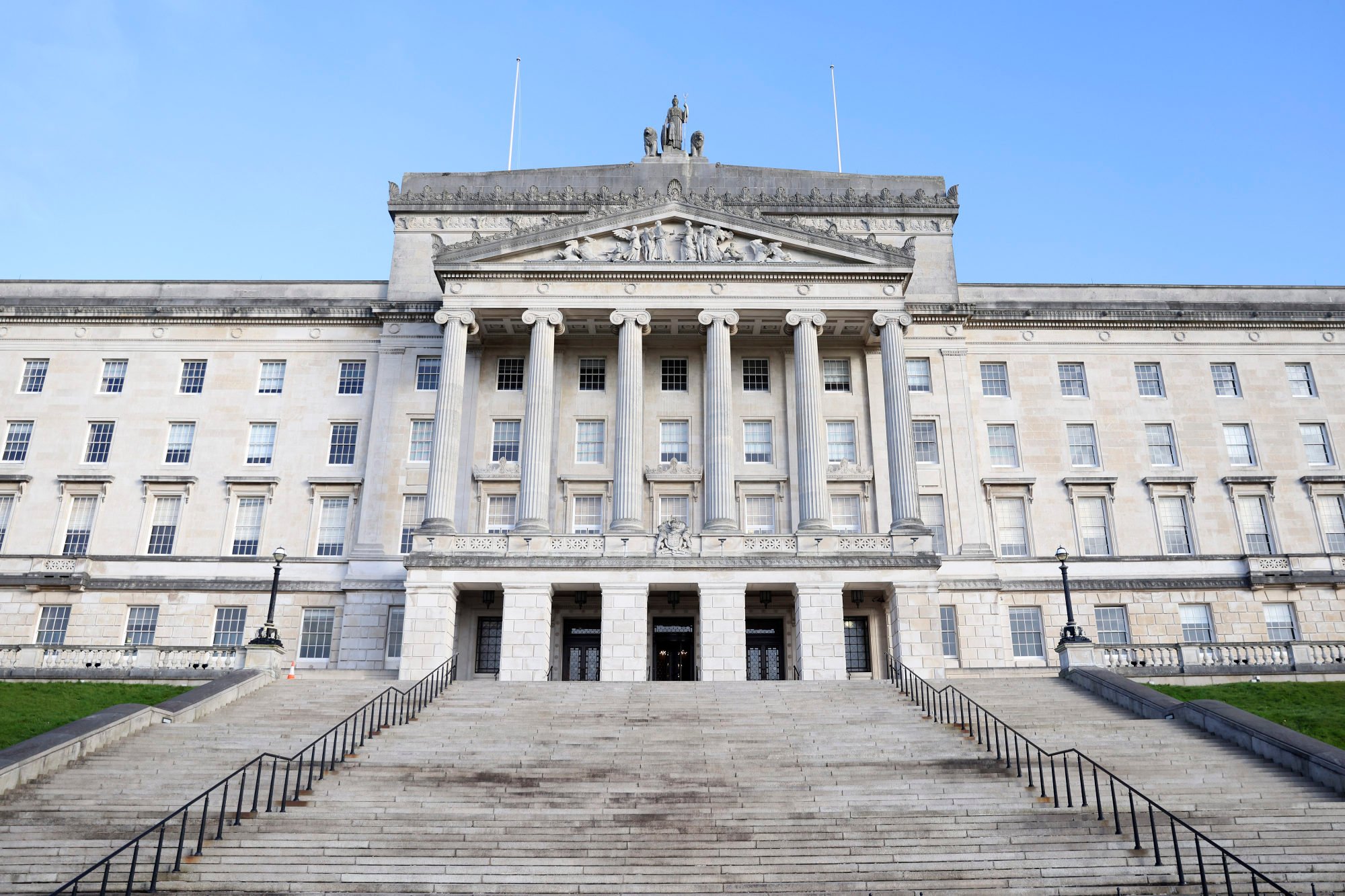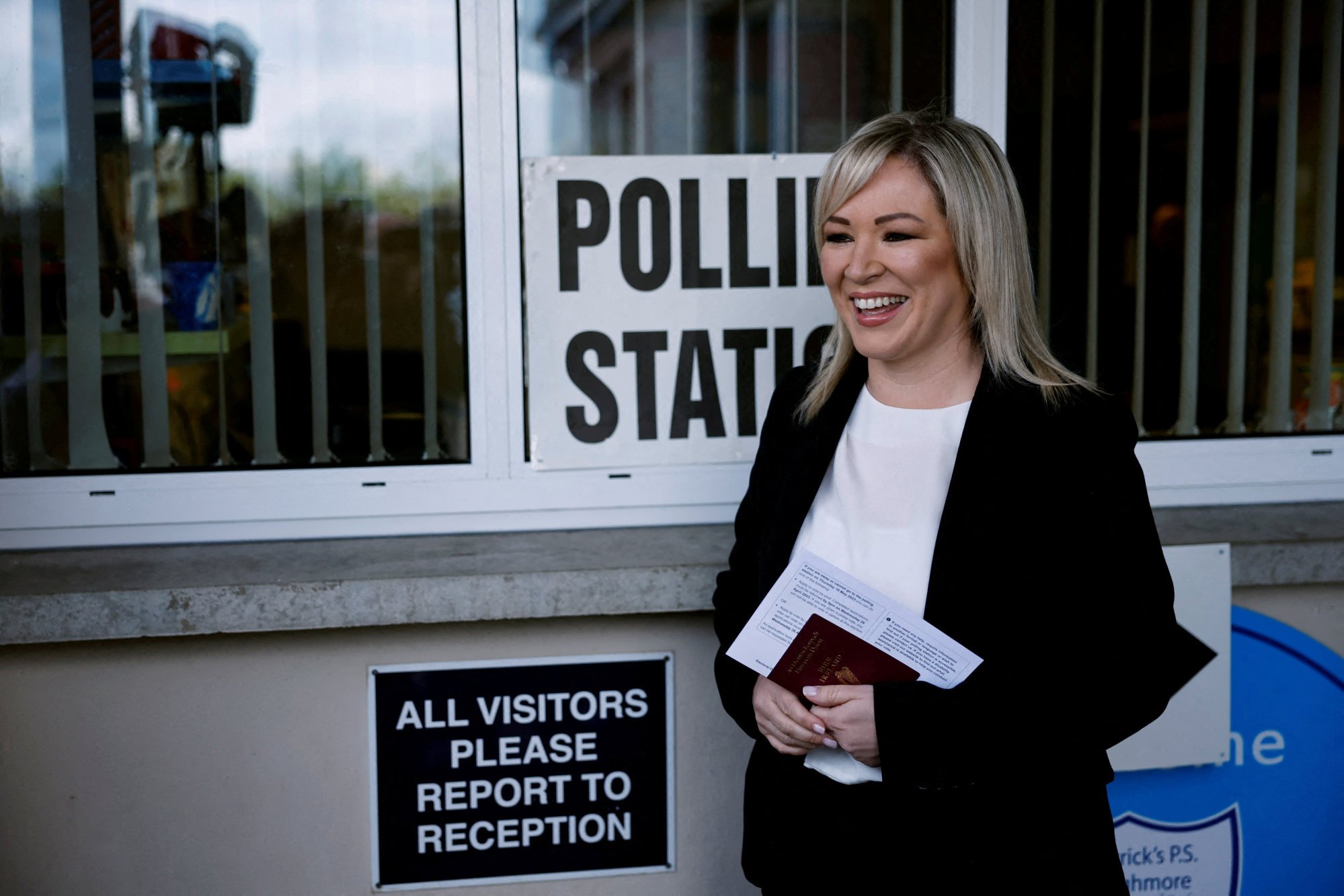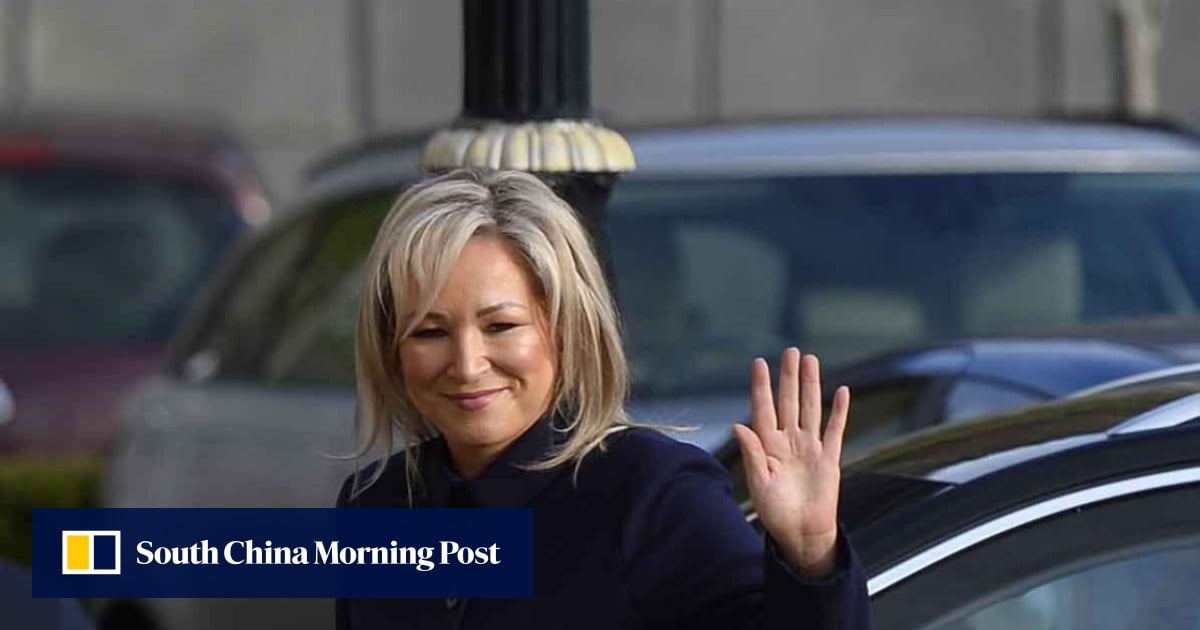But the appointment of a Roman Catholic pro-Irish unity first minister in a nation set up as a Protestant-majority state under British rule is hugely symbolic.
It not only reflects Sinn Fein’s position as Northern Ireland’s biggest party but also shifting demographics, since the island of Ireland was split into two self-governing entities in 1921.
“This is a historic day,” the incoming first minister posted on the social network X on Saturday morning.

“It is about the future. It is about working together to deliver for workers and families, and creating new and exciting opportunities that ensure our children and grandchildren can achieve their dreams and ambitions in life.
“As a first minister for all, I am determined to lead positive change for everyone, and to work together with others to progress our society in a spirit of respect, cooperation, and equality.”
“Bear in mind, partition itself, the establishment of this state, was on the basis of creating an inbuilt and permanent unionist (pro-UK) majority,” Sinn Fein president Mary Lou McDonald said this week.
“That day has gone,” she said, adding that with O’Neill in Belfast, and potentially a Sinn Fein-led government in Dublin at the next election, it could drive “a new constitutional dispensation ending partition”.

In the immediate term, O’Neill, 47, who embodies a new generation of progressive Irish republicans, faces the pressing problem of fixing budgetary constraints and crumbling public services that have sparked widespread industrial disputes in Northern Ireland.
O’Neill comes from a family well-acquainted with the dark days of sectarian strife that began in the 1960s.
Her late father was jailed for being a member of the Irish Republican Army (IRA) and a cousin was killed by members of Britain’s elite Special Air Service (SAS) regiment.
But O’Neill is from a generation that came of political age after the 1998 Good Friday or Belfast Agreement brought about peace, and promises to be “first minister for all”.
She paid tribute to British head of state Queen Elizabeth after her death in 2022, and attended King Charles III’s coronation.

Both would have been unheard of when Sinn Fein was the political wing of the IRA.
O’Neill has called the restoration of the assembly “a day of optimism” and called for a joint effort to tackle the problems.
Her left-wing liberalism, glamorous appearance and slick politicking have found favour with younger voters angry at the lack of secure jobs and housing since the 2008 financial crash.
A grandmother since last year, she credits her toughness to being a teenage mum.
“I know what it’s like to be in difficult situations, I know what it’s like to struggle, I know what it’s like to go to school and have a baby at home, and to be studying for your exams,” she told the Belfast Telegraph.
Prince Charles shakes hands with Irish Republican leader Gerry Adams
Prince Charles shakes hands with Irish Republican leader Gerry Adams
O’Neill has been first minister-designate since May 2022, when Sinn Fein became the largest party at elections for the 90-seat assembly, which sets policy in areas such as housing, employment, health, agriculture and the environment.
But she has been unable to take up the role because of a boycott of the assembly by the largest pro-UK unionist party, the DUP, over post-Brexit trading rules for Northern Ireland.
Northern Ireland’s border with the Republic of Ireland to the south is the UK’s only land border with the European Union but under the 1998 peace deal it needs to be kept open, without infrastructure.
London struck an agreement with Brussels over Northern Ireland, in addition to its overall Brexit trade deal.
That accord proposed port checks on goods coming to Northern Ireland from mainland Great Britain – England, Scotland and Wales.
Unionists, though, said that effectively keeping Northern Ireland in the EU single market and customs union, while the rest of the UK was out, risked cutting it adrift from the rest of the UK, and made a united Ireland more likely.
Gerry Adams stepping down as Sinn Fein leader after 34 years
Gerry Adams stepping down as Sinn Fein leader after 34 years
The DUP finally agreed to a deal with London this week, including the lifting of routine GB-NI checks and what it calls the “Irish Sea border”, paving the way for Stormont to return.
The deal also means the UK government will release a £3.3-billion (US$4.2-billion) package to bolster struggling public services in Northern Ireland, after a series of strikes in recent weeks over pay.
Saturday’s formalities begin with the election of a neutral Speaker, then nominations for the parties entitled to jointly lead the decision-making executive, and ministers for nine departments.
The non-aligned third-biggest party, Alliance, has said it will be willing to take the justice portfolio again, and is eligible for another ministry.
The smaller Ulster Unionists are also entitled to a ministerial position but the fifth-largest party, the nationalist SDLP, are not and will form the opposition.
Not everyone in Northern Ireland has welcomed the assembly’s return, with smaller, more hardline unionists remaining bitterly opposed and saying the new deal changes nothing.
“We will be fighting this surrender deal. We will not be surrendering our land to the EU,” pro-UK activist Mark McKendry told fellow loyalists on Thursday, calling on them to “mobilise” in protest.

